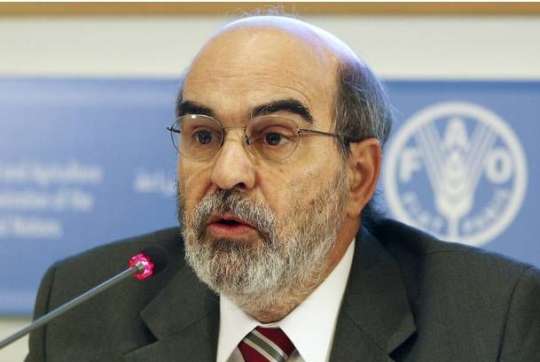More than 30 countries have formally deposited their instruments of adherence with the Food and Agriculture Organisation of the United Nations (FAO) to enforce the Port State Measures Agreement (PSMA), the world’s first international treaty designed specifically to tackle illegal, unreported and unregulated (IUU) fishing, globally.

Adopted by FAO members in 2009, the treaty marks a big step beyond self-regulation of the seafood sector, from which illicit activity siphons off up to $23 billion a year.
Now in force, the PSMA, according to Jose Graziano da Silva, the Director General of the FAO, would reduce the number of fishing activities which, findings say that last year alone, one of every fish sold around the world was caught illegally.
“Under this new agreement, parties are obliged to ensure that any fishing vessel that comes to its port, even for refueling, must announce that it is doing so and submit to an inspection of their log book, licenses, fishing gear and, to be sure, their actual cargo. Port State authorities agree to share information on violations, thus making it harder for rogue fishermen to shift their practices elsewhere,” da Silva stated.
According to the DG, those in illegally fishing business, “who not only profit but also jeopardise coordinated efforts to manage global marine resources in a sustainable manner so that fishing can prosper as a viable activity and people everywhere can enjoy its nutritional benefits – face higher operating costs and the serious risk of being caught.”
However, the treaty, which presently only applies to countries that have consented to it would, da Silva explained, require more traction and accelerated effectiveness and impact, if more countries joined.
“As they do, there will be ever fewer port-hopping opportunities for rogue vessels determined to flaunt laws that regulate catch levels, usually to protect biodiversity and stock levels. But have no doubts. History’s net has been cast. Membership is destined to grow,” he assured.
The DG congratulated the parties to the treaty, which include Australia, Barbados, Cabo Verde, Chile, Costa Rica, Cuba, Dominica, the European Union (on behalf of its member states), Gabon, Grenada, Guinea, Guyana, Iceland and Indonesia.
Others are Mauritius, Mozambique, Myanmar, New Zealand, Norway, Oman, Palau, Republic of Korea, Saint Kitts and Nevis, Saint Vincent and the Grenadines, Seychelles, Somalia, South Africa, Sri Lanka, Sudan, Thailand, Tonga, United States of America, Uruguay, Vanuatu.
The Treaty Seeks to:
- Make it harder for improperly caught fish to enter the market, disrupting a critical step in seafood’s complex ocean-to-table supply chain
- Ensure compliance by adhering to the treaty
- Ensuring that ports that offer services to outlaws will not escape notice
FAO views the stand as a turning point in the struggle against illegality in the fisheries sector and the PSMA is a concrete step towards healthier oceans, as called for by Goal 14 of the new Agenda 2030 for Sustainable Development.
FAO emphasised how sustainable development required integrated efforts and relied on network effects – which in turn could catalyze positive feedback loops.
“The requisite port state inspections, for example, may indirectly complement other global concerns, including the use of slave labor in fishing-industry, illicit trade in endangered species and better management of Marine Protected Areas,” da Silva concluded.
By Abdallah el-Kurebe
